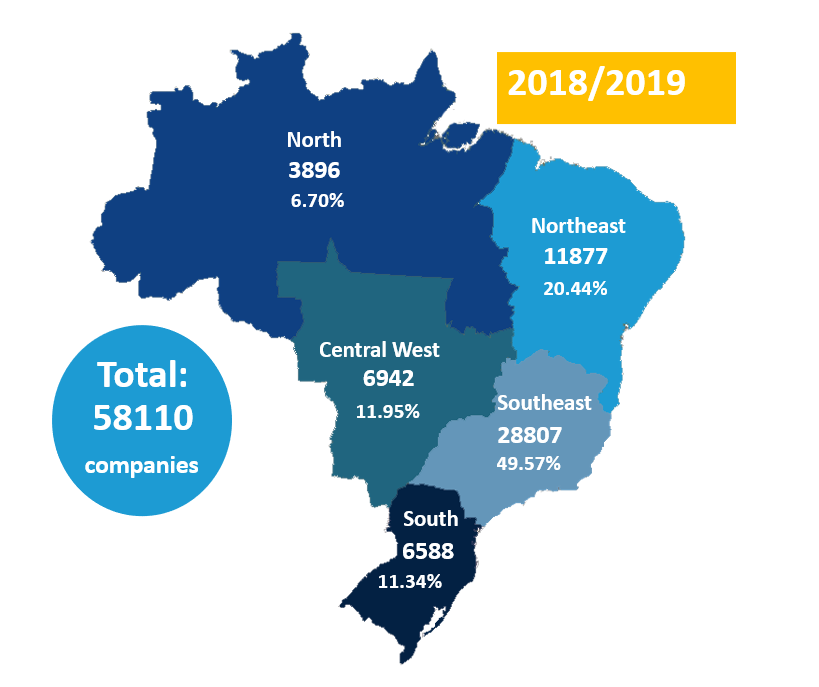ICMS/RJ – Monthly frequency of tax documents related to goods transported by pipelines
10/09/2021Direct transmission of DCTFWeb
15/09/2021EXPERT OPINION
ECF 2021: Is your company prepared for data cross-checking?
The Brazilian Federal Revenue Office has been demonstrating its inspection capacity, demanding attention from companies in relation to ECF and the cross-checking with other obligations
By Glauciele Knupp
This year, the Tax Accounting Bookkeeping (Escrituração Contábil Fiscal - ECF) must be submitted by companies until September 30th, which is close. Hence the need to make the last adjustments for presenting it in full compliance.
ECF uses data from other sources and, at this point, the required information is already, or at least should be, available for its composition. A few days before the deadline, it is time to conduct analysis and prior cross-checking of information to make sure that the data is in line with other ancillary obligations.
ECF is aimed at calculating the Corporate Income Tax ( IRPJ) and the Social Contribution on Net Income (CSLL), in relation to the taxable events that occurred in the previous year.
Obligation
All legal entities, including those that are immune and exempt, are required to fill in the ECF annually, whether they are taxed on actual profit, estimated profit or presumptive profit, except:
- Legal entities which opted for Simples Nacional (simplified tax system);
- Government authorities, agencies and foundations;
- Inactive legal entities (which have not carried out any operational, non-operational, proprietary or financial activity, including investments in the financial or stock markets, throughout the calendar year).
ECF in the sights of inspection
Why is there so much talk about ECF cross-checking? Because the Federal Revenue Office has increasingly demonstrated the evolution of its inspection capacity. In May 2021, the agency notified around 58,000 companies about differences found between ECF and other information in its database.

In this project, the tax authorities issued a notice to the companies and granted a period for review and correction, without imposing a fine. The work demonstrates, at the very least, that the agency is very well prepared to detect inconsistencies.
Following this same line, the Federal Revenue Office launched, in July, the Support Program for Tax Compliance (PAC/PJ), which proposes prior actions to encourage the regularization of pending issues related to ECF.
In this action, legal entities which did not include some data in the ECF for 2020 were informed by the agency about information that must be included in the 2021 submission.
45 thousand notices were issued, informing the companies about incomes of more than BRL 1 thousand in 2020 and/or funds received in bank checking accounts of more than BRL 10 thousand.
ECF main cross-checks
How does the data cross-checking work? In the Support Program for Tax Compliance (PAC/PJ), the information between the systems below was crossed checked:
- NF-e (electronic invoices)
- Decred (credit card transfer information)
- Digital Tax Bookkeeping of Contributions (gross revenue amounts)
- ICMS/IPI Digital Tax Bookkeeping (revenue amounts, with some deductions)
- DIRF (payments declared by third parties)
- Bank transactions
Some data are provided by the legal entity itself, such as the electronic invoice and Sped bookkeeping. Other cross-checks are made from information provided by third parties, such as DIRF, Decred and e-Financeira.
It is important to clarify that the cross-checks go further, including other types of obligations, such as ECD, EFD/ICMS, DCTF, EFD-Contribuições and Bacen.
This scenario reinforces the need to maintain an overview of processes and tax integration.
In addition, the obligations have submission deadlines that can be monthly, quarterly and annual, for example, and it is important to monitor them based on proper tax planning.
It is also striking that in PAC/PJ, in a only few months, the cross-checking was made and the companies notified. The automatic verification is expected to become more and more agile.
It is not possible to determine, however, if tax authorities will keep taking only instructional and preventive measures for much more time, just to support businesses in maintaining compliance.
Previous analysis
If the government has been increasingly investing in technology to check submissions, the same attitude must be adopted by taxpayers, who must find ways to cross-check their data internally and solve possible failures before the final presentation of ECF.
Maintaining well-planned accounting and tax processes is essential to reduce exposure to tax audits or other tax controls. In addition, promoting prior analysis with technological support and expert guidance ensures flawless consolidation.
ECF comprises accounting, tax and other information. These groups are further divided into 15 blocks that are linked to some ancillary obligation.
The structure itself is already complex and involves a large volume of data, requiring careful attention in submission and prior check. Some points of attention are:
- Review and validation of the income tax and social contribution calculation;
- Link between entries in part A of LALUR and ECD;
- Validation of From/To of the Referential Plan for tax calculation purposes;
- Layout adequacy;
- Declared calculation log;
- Checking of possible information gaps in the previous year's statement;
- Creation of accounts or other mechanism to detail LALUR entries.
ECF 2021 in compliance
Domingues e Pinho Contadores promotes the prior analysis and cross-checking of ECF information with other obligations in the routine service of its clients, ensuring compliance with submissions.
This consulting service can also be provided on a case-by-case basis to companies that aim to align the information that will be provided to the tax authorities.
Specifically about ECF, DPC's expert team works with:
- Review of the statement, including cross-checking of information with other ancillary obligations
- Rectification and submission
- Compliance with Federal Revenue Office notifications
- Review and control of tax calculations and credits
- Transfer Pricing and demands related to multinational groups

Author: Glauciele Knupp, partner at Domingues e Pinho Contadores.
How may DPC help your company?
Domingues e Pinho Contadores has a specialized team ready to assist your company.
Contact us by email at dpc@dpc.com.br
See more
Sign up for our Newsletter:
Are you interested?
Please contact us, so we can understand your demand and offer the best solution for you and your company.
Rio de Janeiro
Av. Rio Branco 311, 4º e 10º andar - Centro
CEP 20040-903 | Tel: +55 (21) 3231-3700
São Paulo
Rua do Paraíso 45, 4º andar - Paraíso
CEP 04103-000 | Tel: +55 (11) 3330-3330
Macaé
Rua Teixeira de Gouveia 989, sala 302 - Centro
CEP 27910-110 | Tel: +55 (22) 2773-3318







